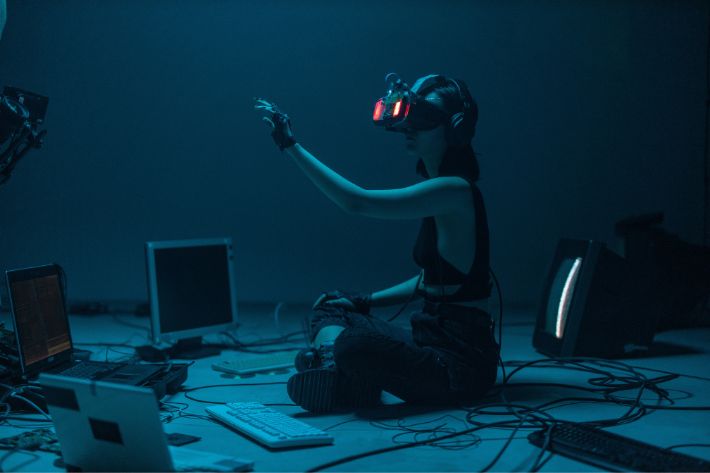The rapid development and adoption of artificial intelligence (AI) technology have raised concerns about its potential impact on the global job market. With machines becoming increasingly capable of performing tasks that were once exclusively done by humans, many experts are warning that AI could put more than 300 million jobs at risk worldwide. In this article, we will explore the rise of AI and its potential impact on the future of work.
Introduction
AI technology has been evolving at an astonishing pace over the past few years. From self-driving cars to intelligent personal assistants like Siri and Alexa, AI is transforming the way we live and work. But with this technological advancement comes a growing concern about the potential impact of AI on the job market. According to a report by the McKinsey Global Institute, up to 375 million workers, or 14% of the global workforce, may need to switch occupational categories by 2030 due to the use of other technologies, including AI.
What is AI
Before we delve into the impact of AI on the job market, let’s first define what we mean by AI. AI describes the creation of computing systems that are capable of learning, solving problems, and making decisions—tasks that would ordinarily need human intellect. These systems are designed to analyze data, recognize patterns, and make predictions based on the information they have gathered.
How AI is Changing the Job Market
As AI technology continues to advance, it is starting to replace jobs that were once thought to be safe from automation. From manufacturing and transportation to healthcare and finance, no industry is immune to the impact of AI. Here are some ways in which AI is changing the job market:
Increased Efficiency and Productivity
One of the primary benefits of AI technology is its ability to increase efficiency and productivity in the workplace. Machines can perform tasks faster and more accurately than humans, reducing the time and resources required to complete them. For example, in manufacturing, robots can work around the clock without taking breaks, leading to increased output and lower costs.
Automation of Routine Tasks
AI technology is particularly good at automating routine, repetitive tasks. This includes things like data entry, record keeping, and even customer service. As these tasks become automated, many low-skilled jobs are at risk of being replaced by machines.
High Level Cognitive Skills Required Careers
While AI may be good at automating routine tasks, it is still not as good as humans when it comes to tasks that require high levels of cognitive skills, such as critical thinking, problem-solving, and creativity. Jobs that require these skills are less likely to be automated in the near future.
Creation of New Jobs
While AI may be replacing some jobs, it is also creating new ones. As companies adopt AI technology, they will need to hire workers with the skills required to design, develop, and maintain these systems. Additionally, new industries are likely to emerge as a result of AI, creating job opportunities in areas such as robotics and machine learning.
Industries at Risk
While AI will have an impact on virtually every industry, some are more at risk than others. Here are some industries that are likely to see significant job losses due to the adoption of AI:
Manufacturing
Manufacturing is one of the industries that has already seen significant job losses due to automation. As machines become more advanced and capable, they are replacing human workers on the factory floor.
Transportation
Self-driving cars and trucks are already a reality, and as this technology improves, the need for human drivers will decrease. This could have a significant impact on the transportation industry, which employs millions of people worldwide.
Retail
As online shopping continues to grow in popularity, many brick-and-mortar retail stores are closing their doors and moving their operations online. This shift towards e-commerce is likely to lead to the automation of many retail jobs, including cashiers and sales associates.
Healthcare
AI technology is starting to make inroads in the healthcare industry, with machines being used to analyze medical images and assist in diagnosing diseases. While this could lead to more accurate diagnoses and improved patient outcomes, it could also lead to the automation of some jobs, such as radiologists and pathologists.
What Can be Done to Mitigate the Impact of AI on the Job Market
While the impact of AI on the job market is likely to be significant, there are steps that can be taken to mitigate its effects. Here are some suggestions:
Education and Reskilling
One of the most important things that can be done is to invest in education and reskilling programs. This will help workers who are at risk of losing their jobs to develop the skills they need to adapt to the changing job market.
Universal Basic Income
Some experts have suggested implementing a universal basic income (UBI) to provide a safety net for workers who are displaced by AI and other technologies. UBI would provide every citizen with a basic income, regardless of their employment status.
Regulation and Oversight
Another suggestion is to implement regulations and oversight to ensure that AI technology is used in a responsible and ethical manner. This could include guidelines for the development and use of AI, as well as monitoring and enforcement mechanisms.
Conclusion
AI technology is transforming the way we live and work, but it is also raising concerns about the future of employment. While AI is likely to replace some jobs, it will also create new ones. The key is to ensure that workers are equipped with the skills they need to adapt to the changing job market. By investing in education and reskilling programs, implementing regulations and oversight, and exploring innovative solutions like UBI, we can mitigate the impact of AI on the job market and ensure a more equitable future for all.
